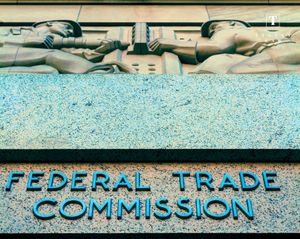Teaming arrangements between contractors are commonplace in federal procurement as the Government often requires solutions encompassing complementary capabilities from multiple contractors to meet its procurement needs. Federal Acquisition Regulation (FAR) § 9.601 describes two types of contractor teaming arrangements. The first involves an agreement between two or more companies to join forces to act as a prime contractor on a federal contract. This is commonly known as a joint venture (JV). The second type of arrangement is between a prime contractor and a subcontractor to perform under a specified Government contract or acquisition program. Before entering teaming agreements, contractors conduct due diligence reviews on their potential teammates to identify and mitigate risks. Savvy contractors understand that to ensure mutually beneficial arrangements, due diligence reviews must be tailored individually for each procurement, accounting for factors such as contract requirements, potential team members, type of arrangement, and the proposed solution. Comprehensive due diligence reviews may be particularly important when entering a teaming arrangement with a company for the first time. Similarly, due diligence reviews are crucial when prospective contractors from different countries come together to form a team. Contractors can streamline such reviews by focusing on some critical areas when conducting due diligence activities.
o Financial Health
An important consideration in conducting due diligence reviews is assessing the financial stability and sustainability of the potential partner. A financial health review can be performed by reviewing financial statements, including income statements, balance sheets, and cash flow statements. The 10-K report required by the Securities and Exchange Commission (SEC) can be obtained for publicly traded companies. A positive net income, substantial working capital, and manageable debt levels are good financial strength indicators. In contrast, significant debts or declining profitability trends could be financial red flags.
o Corporate & Management Structures
Contractors should evaluate the potential partner’s organizational structures, including those of any subsidiaries. This may be particularly important in the context of multi-jurisdictional arrangements. Such teaming agreements should include well-defined choice of law and forum clauses. Executive and management team structures of potential partners should be assessed to ensure that an individual with proper binding authority signs the teaming agreement. Furthermore, it is important to evaluate the experience and qualifications of the management team in managing contracts of similar size, scope, and complexity. Overall, prospective teammates should look for signs of strong leadership and an effective communication structure existing within a well-defined chain of command.
o Technical Competence
While seemingly an obvious first step, contractors should carefully assess a potential teammate’s technical capabilities in the context of the relevant solicitation requirements. Such a particularized assessment, in conjunction with the teammate’s general experience in the relevant field, helps ensure they possess the necessary skills and resources to perform their portion of the proposed solution. Any proposed technical solution involving shared infrastructure should be assessed for feasibility and compatibility. Finally, during the technical expertise review, special consideration should be given to any potential key personnel qualifications, certifications, and experience that may be highlighted in the proposal.
o Past Performance
Contractors should identify and vet potential teammates' past performance histories by requesting that they provide relevant CPARS on similar past contracts. Government references for previous contracts can also be requested to assess past performance. In such scenarios, well-defined confidentiality agreements can help ensure that any past performance information shared for the purposes of entering a teaming arrangement is not improperly disclosed to third parties. Any past contract terminations, defaults, or partnership disputes should be flagged and reviewed.
o Regulatory Compliance
Contractors should seek teammates with a history of compliance with all applicable federal, state, and local regulations, including facility clearance and security standards. Adequate regulatory compliance can be verified by obtaining copies of licenses and certifications relevant to performance on the contract. Any past regulatory violations or sanctions imposed by the Government should be flagged as issues potentially impacting the team’s responsibility determination.
o Other Legal Matters
Contractors should review any legal issues, litigation, or government investigations that the team member may be subject to. While not necessarily dispositive to the ultimate teaming decision, especially when entering teaming arrangements with large organizations, such issues may nevertheless impact the teammate’s performance on the contract. Such matters may also jeopardize the team’s responsibility determination. Any past or current litigation involving the teammate should be thoroughly investigated and reviewed as posing a potential reputational risk.
Standard teaming agreements should be assessed for potential risks and liabilities and appropriately modified for mitigation. The final teaming agreement should clearly define roles, responsibilities, intellectual property rights, and dispute resolution mechanisms. Any legal issues should also be flagged.
o Cybersecurity Risk Assessments
Contractors must also evaluate their partner’s cybersecurity posture and controls to ensure adequate measures are in place to protect sensitive data. If the teaming arrangement contemplates extensive use of the teammate’s computer systems or networks during performance, such systems and networks should undergo a separate cybersecurity risk assessment.
In conclusion, by conducting thorough due diligence reviews focused on critical areas like financial health, corporate structure, technical competence, past performance, and regulatory compliance, contractors can significantly mitigate risks and increase the chances of a successful teaming arrangement. While each due diligence review is different, identifying and focusing on key risk areas improves the effectiveness of teaming reviews while addressing and mitigating potential risks. Experienced contractors understand that due diligence is an ongoing process, and monitoring teammate’s compliance with requirements and their performance is essential to a successful teaming arrangement. By conducting a comprehensive teaming review upfront, contractors can ensure they are entering a mutually beneficial partnership that strengthens their proposal and positions the team for success.
This Federal Procurement Insight is provided as a general summary of the applicable law in the practice area and does not constitute legal advice. Contractors wishing to learn more are encouraged to consult the TILLIT LAW PLLC Client Portal or Contact Us to determine how the law would apply in a specific situation.





